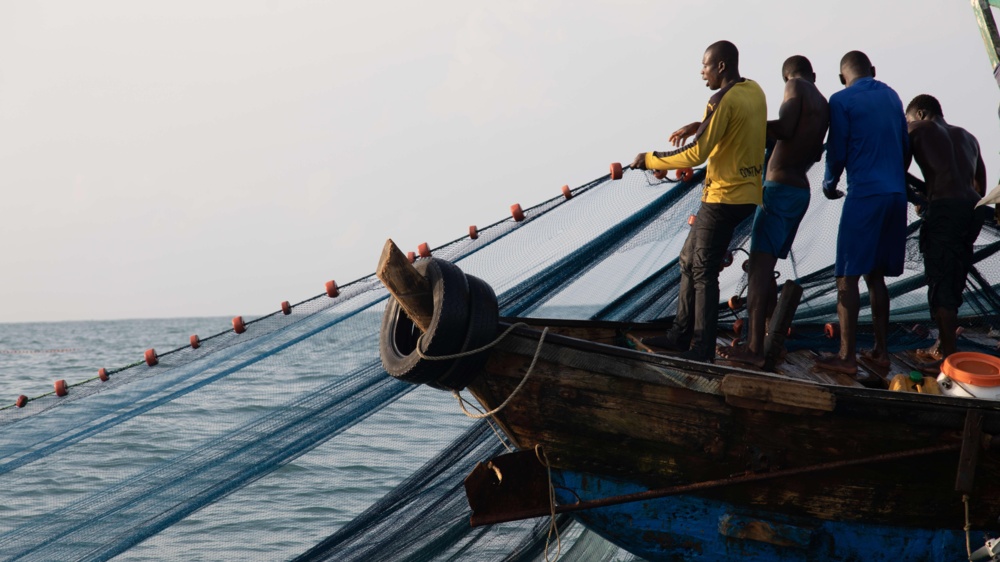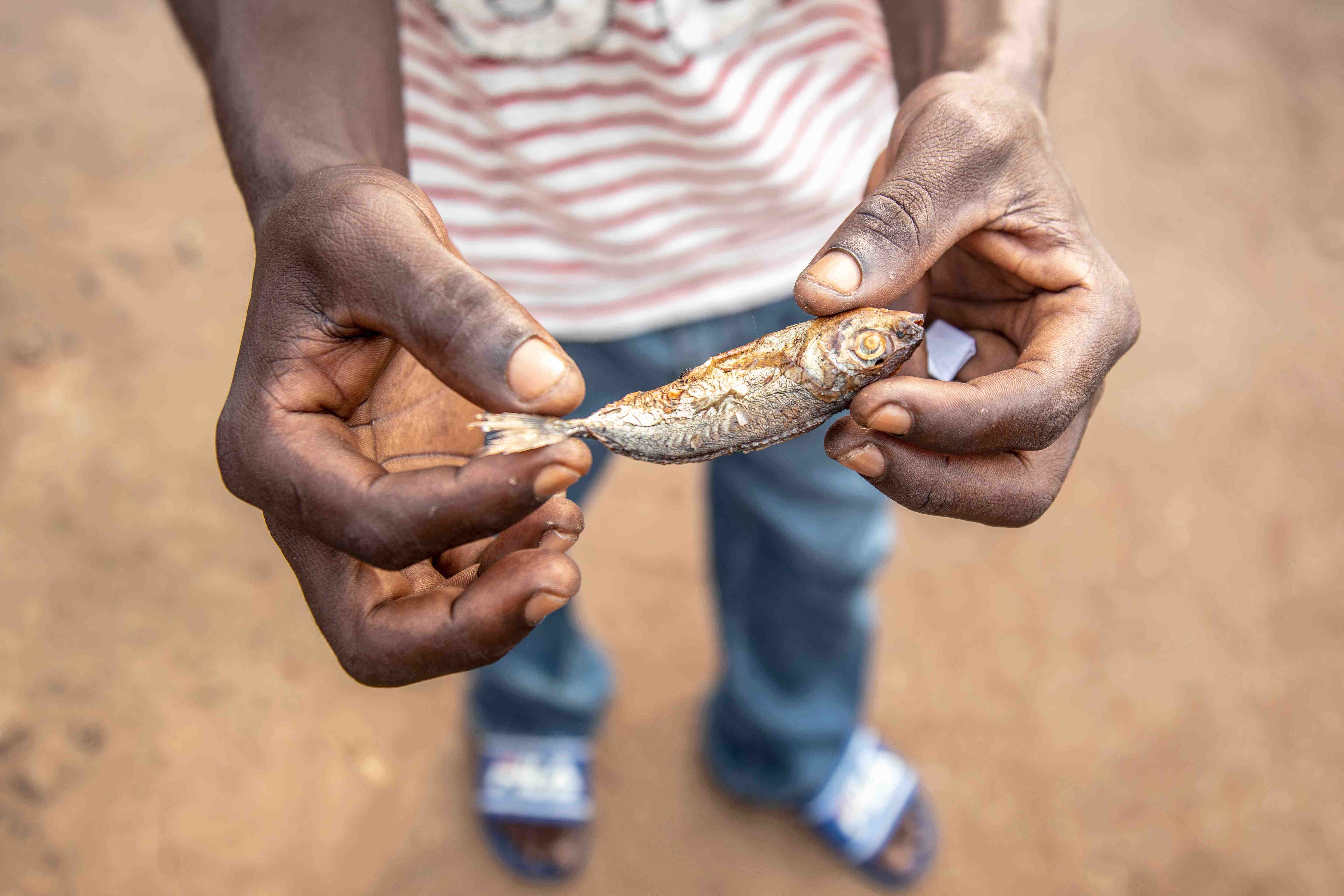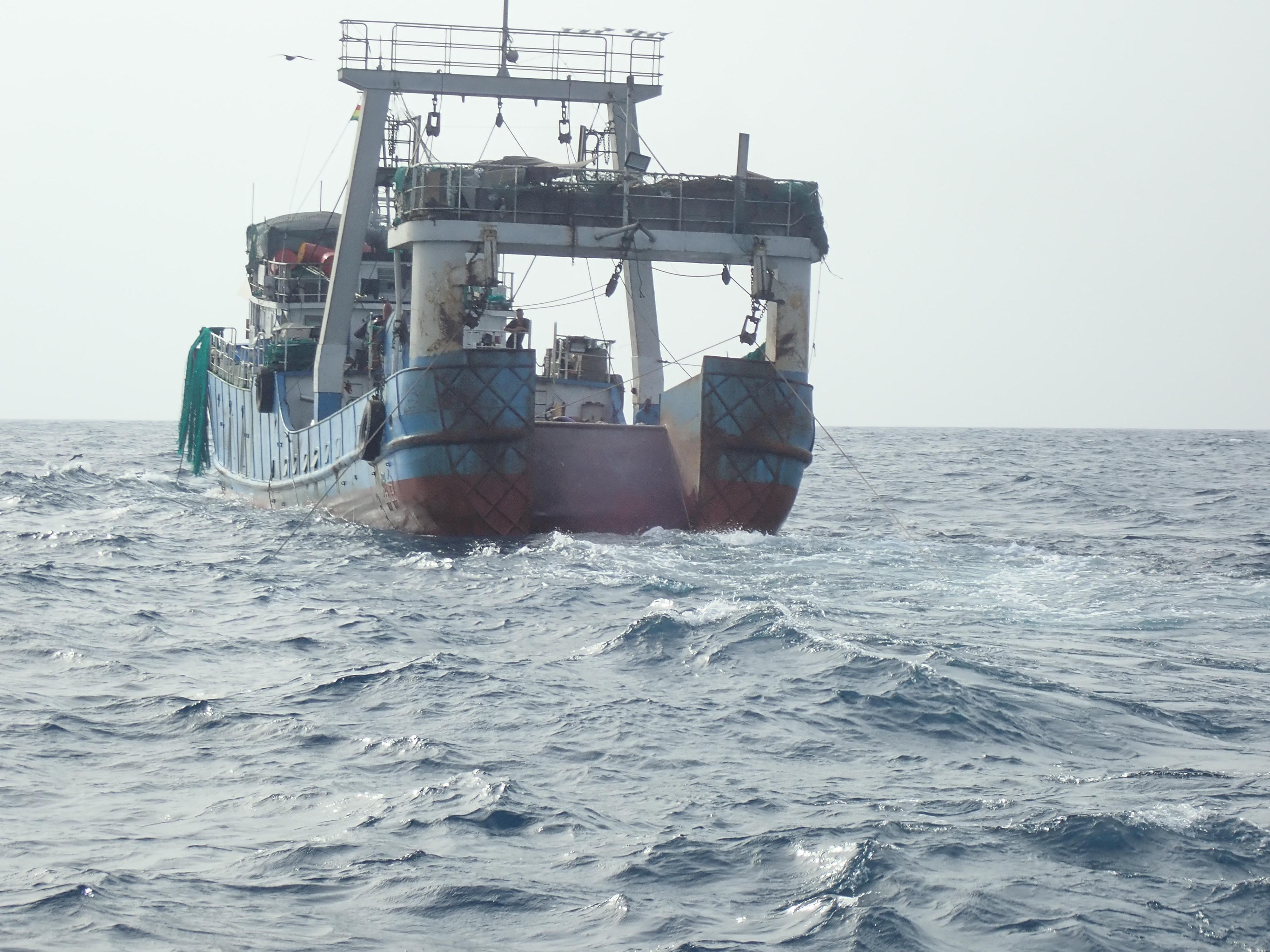
WTO urged to end harmful fisheries subsidies
Subsidies can allow industrial fishing fleets to decimate marine ecosystems, with extreme impacts on the livelihoods and food security of small-scale fishing communities, a new film from the Environmental Justice Foundation has highlighted. The film – screened today in a Friends of Ocean Action webinar – shows why it is urgent that a deal is reached by members of the World Trade Organization (WTO) this year to eliminate harmful fisheries subsidies.
Despite the fact that a third of fish stocks are already exploited beyond sustainable levels, governments continue to provide an estimated US$22billion every year in harmful subsidies that increase fishing capacity. To bring an end to this perverse situation, under Sustainable Development Goal 14 governments were tasked with reaching a new agreement at the WTO to eliminate harmful subsidies by 2020.
EJF’s film focuses on Ghana, where although foreign ownership is prohibited in the trawl sector, the vast majority of trawlers – an estimated 90% – are owned and controlled by Chinese corporations that use Ghanaian ‘front companies’ to gain registration. Despite vast overcapacity and widespread illegal fishing, these corporations are still able to benefit from subsidies.
One state-owned Chinese company with trawl operations in Ghana reported receiving subsidies of around US$3 million in 2019 for the development of its overseas fishing operations. One of the company’s vessels is currently the subject of a court case for illegal fishing in Ghana. At least six Chinese fishing companies with trawl operations in Ghana have obtained ‘ocean fishery enterprise’ qualifications from the Chinese government, which confer eligibility to receive state subsidies.
The damage that such vessels perpetrate, while benefiting from state support, is deeply concerning. EJF has documented several Chinese-owned vessels engaging in an extremely destructive form of illegal fishing, known locally as ‘saiko’. In this illegal trade, trawlers target the staple catch of canoe fishers, transfer it to specially adapted boats at sea, and sell this stolen fish back to local communities at a profit.
In 2017 alone the saiko trade took around 100,000 tonnes of fish, worth over US$50 million when sold at the landing site. Landings of a key species – sardinella – have crashed by around 80% over the past twenty years. Saiko is costing Ghanaians millions of dollars annually and threatening ocean ecosystems, coastal livelihoods and food security.
“It is vital that the members of the WTO achieve an agreement this year to eliminate harmful fisheries subsidies. In the film we highlight the impacts of these perverse incentives in just one country highlighting the damage they cause to marine ecosystems, local livelihoods and food security. There is a deep injustice in that wealthy countries are able to hand out subsidies that may be directly destroying livelihoods in poorer nations. But ultimately harmful fisheries subsidies are good for no-one: if they allow fleets to fish the oceans unsustainably, to the point of ecosystem collapse then everyone is worse off, from the corporate interests to the crew aboard the trawlers to the canoe fishers and communities whose lives depend on this invaluable resource,” said Steve Trent, Executive Director of the Environmental Justice Foundation.
“Five years ago, the leaders of all 193 Member States of the United Nations agreed ‘to provide access for small-scale artisanal fishers to marine resource and markets’, through the adoption of SDG14 Target B. To this end, through the adoption of SDG14 Target 6, they asked the WTO to end fisheries subsidies contributing to overfishing, overcapacity, and illegal, unregulated and unreported fishing by 2020. In the meantime, the collapse of fish resources fuelled by these harmful subsidies has continued, putting the livelihoods of millions of small-scale artisanal fishers at risk. We see this very clearly in the film that was released today by the Environmental Justice Foundation during a Friends of Ocean Action webinar. As we enter the final weeks left to us to deliver on our agreed obligations under SDG14.6, from the perspective of developing countries in particular, I view it as critical that WTO members heed the voices of small-scale artisanal fishers,” said Ambassador Peter Thomson, UN Secretary-General’s Special Envoy for the Ocean and Co-Chair of Friends of Ocean Action.
SIGN UP FOR OUR EMAILS AND STAY UP TO DATE WITH EJF

